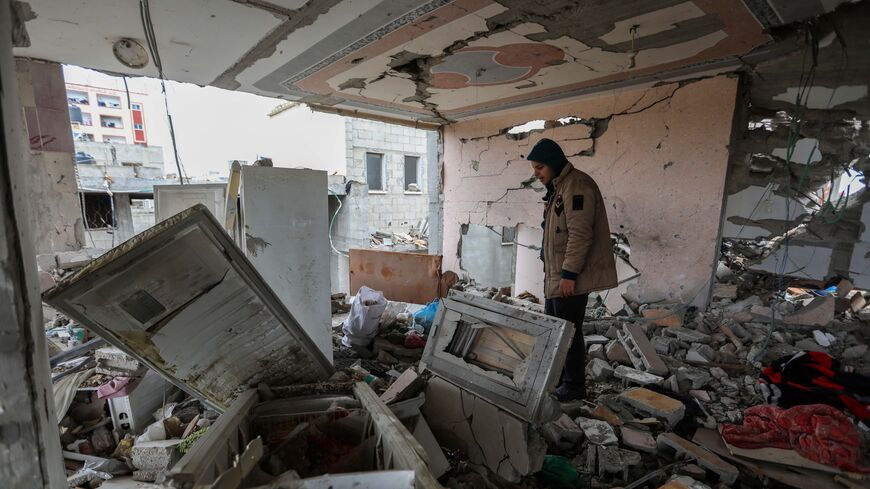Israel should ease 'unnecessary restrictions' on key Gaza goods, Blinken says
The top US diplomat acknowledged Israeli concerns about "dual-use" items ending up the hands of Hamas, but said "greater clarity" is needed for humanitarian groups whose work is hindered by "unnecessary restrictions."

WASHINGTON — Secretary of State Antony Blinken called on Israel to “open as many access points as possible” and ease “unnecessary restrictions” on goods entering the Gaza Strip, where hundreds of thousands of Palestinians are going hungry.
“Food is getting in, but it’s insufficient,” Blinken said. “That’s why we’re talking about doing everything possible to maximize not only what gets in but what gets to people.”
The limited amount aid that does reach Gaza is subject to what relief organizations describe as a convoluted and time-consuming inspection process by Israel. Aid workers say decision of what’s allowed into Gaza is often at the discretion of whichever Israeli customs officer is inspecting the trucks that enter through two approved crossings, Rafah and Kerem Shalom. Items they’ve seen turned away range from sleeping bags and bedpans to vitamin drink powder.
Before the current war, Israel heavily restricted imports to Gaza that were considered dual use, such as cement and fertilizers, which Hamas could use to expand its network of tunnels and build more bombs. But Israel hasn’t produced an updated list of prohibited items since launching its military campaign against Hamas in October, according to aid workers.
Speaking to reporters in Washington, Blinken called for “greater clarity and predictability on what can get in and what can’t.”
“There is a legitimate issue here about dual-use items, but we need to see much greater clarity, much greater consistency on what these are,” he said.
For months, US officials have called on Israel to address the humanitarian crisis in Gaza to prevent what the United Nations warns could turn into a man-made famine in the besieged enclave. Under pressure from the Biden administration, the Israeli military allowed six aid trucks to cross directly into northern Gaza from Israel on Tuesday, in what it called a pilot program for getting humanitarian assistance to the isolated population there. Blinken called on Israel to open more access points and “keep them open to make sure that things are flowing in a sustainable way.”
On Wednesday, Blinken participated in a virtual meeting with the countries involved in a new maritime aid mission to Gaza: Cyprus, the United Kingdom, the United Arab Emirates and Qatar as well as the European Union and the United Nations.
A Spanish charity ship left Cyprus on Tuesday carrying 200 tons of food bound for Gaza, in what the EU described as a dry run for the new maritime corridor that President Joe Biden announced during last week’s State of the Union. Biden directed the US military to build a floating port to facilitate the seaborne aid shipments, which the Pentagon says could take up to two months to complete.
The maritime effort comes after the United States this month joined other countries in airdropping pallets of food and other supplies to Gaza. Humanitarian organizations welcomed the deliveries but said airdrops and sea shipments alone won’t meaningfully address the needs of a population on the brink of famine.
The top US diplomat spoke hours after the United Nations agency for Palestinian refugees said that one of its employees died and nearly two dozen others were injured when Israeli forces “hit” a food distribution center in eastern Rafah. At least 165 of the refugee agency’s employees have been killed since the war erupted in October, it said in a statement Wednesday.
Blinken said the administration was waiting for an Israeli investigation into the incident in Rafah, which he said generally underscored the "imperative of having much better and much more consistent deconfliction” to ensure safe passage for aid workers across Gaza.







